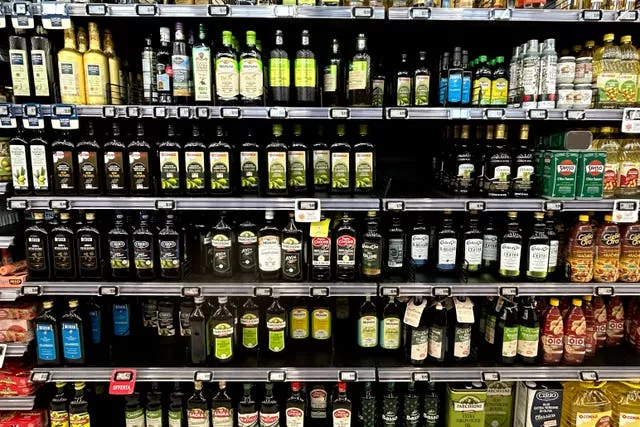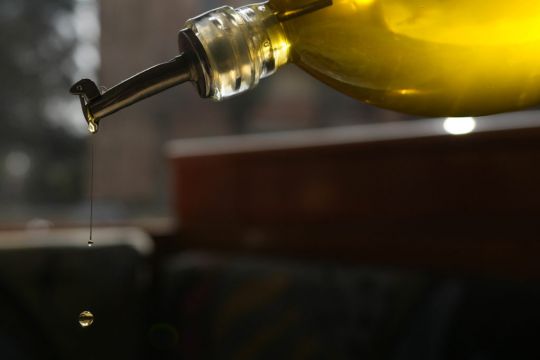A third of Italians have reduced their consumption of extra virgin olive oil due to skyrocketing prices, according to a survey released on Friday.
But Italian producers are pushing back against the claim, saying the snapshot of consumer sentiment does not give a full picture – and that sales of higher-quality, Italian, extra virgin olive oil are actually up.
Consumers reported cutting back consumption of extra virgin olive oil by at least 30 per cent to as much as half as average supermarket prices have risen from €4 to €9 a bottle, according to a survey by the Piepoli independent research institute.
Nearly half of those questioned said they were substituting olive oil with cheaper seed oil.

The survey of 500 Italian adults had a margin of error of plus or minus 4.4 percentage points.
The reported drop in consumption is much less of a hit than in other olive oil-producing Mediterranean Sea countries, as two years of drought has drastically cut production in Spain, the world’s largest olive oil producer, and pushed up global prices.
Greece and Spain have both seen olive oil sales plummet by one-third over the last year, according to industry estimates.
Even the softer Italian numbers are too much for the industry to take quietly.
David Granieri, president of the Unaprol olive-growing consortium that represents half of Italy’s production, said the higher prices have helped clarify the market, separating lower-quality extra virgin olive oils from premium extra virgin olive oils.
While the Piepoli survey showed consumers buying less oil from supermarket shelves, Mr Granieri said industry data indicates domestic sales of extra virgin olive oil produced in Italy, which can cost up to €14 a litre, were up 8 per cent in the first two months of this year.
“The Italian consumer has been under the illusion that olive oil is a commodity,” Mr Granieri said, aided by low supermarket prices.
“Olive oil is not a commodity. It is a nutrient that is at the heart of the Mediterranean diet and that plays a fundamental role also socially. This is something that is keenly felt in Italy.”
Piepoli chief executive Sara Merigo underlined that the survey measured consumer sentiment, which is distinct from sales.
The pushback over the findings, she said, was due to Italians’ close relationship with olive oil.
“It is not just a product. It represents us on the international stage and is part of our diet for centuries,” she said, factors that made the data, “striking”.







